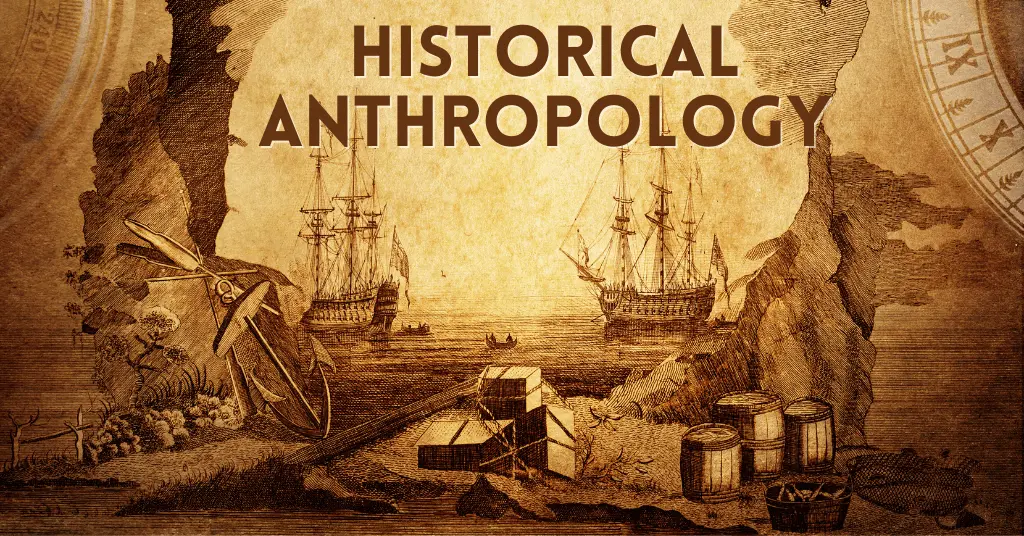
Anthropology and history
Overview
In simple words, Anthropology and history courses teach students about the relationship between the past and the present and how to analyse historical events and people. You will learn about human behaviour, cultures, societies, and linguistics, both in the past and present.
Objectives
- Understand Human Diversity and Cultural Evolution
- Analyse the relationship Between History and Culture
- Development of Human Societies
- Apply Interdisciplinary Methodologies
- Examine Social, Political, and Economic Structures
- Awareness of Global Issues and Cultural Sensitivity
- Engage with the Ethical Dimensions of Anthropology and History
- Develop Communication and Research Skills
Prerequisites
- Basic understanding of history, geography, and sociology
- Basic knowledge of anthropology
- Language Skills
Curriculum Outline
- Anthropological Ideas
- Reading and Writing History
- Identity, Agency & Environment 1
- The Goldsmiths Elective
- The Goldsmiths Project
- Working with Images
- Anthropology of Religion
- Anthropology and Public Policy
- Critical Ecologies: black, Indigenous, queer and transnational feminist approaches
- Indigenous Cosmopolitics, Anthropology and Global Justice
- Anthropological Approaches to History
- Anthropology of Health 1
- Anthropology and Gender Theory
- Anthropology and the Visual
- Material Culture
- Anthropology in Public Practice
- Borders and Migration
- Learning from Social Movements
- Psychological Perspectives in Anthropology
- Anthropology of Art
- Anthropology of Rights
- Anthropology and the Visual: Production Module
- Digital Anthropology
- Anthropology of Violence
- Anthropology of Development
- Gender Theory in Practice
- Staff/Student Research Project
Teaching Method
- Lectures
- Seminars
- Guest lectures
Modules
- Key Concepts in Anthropology
- The Anthropological Imagination
- The Early Modern World
- Anthropology of Capitalism, Care and the Environment
- The Making of the Modern World
- Worlds and Selves
- Ethnographic Research Methods
- Ideas of History
- Religion and Ritual
- Global History from the Global South
- Politics and Power
- Anthropology of the Body
- Death, Dying and the Corpse
- Development, Business and Corporate Social Responsibility
- Global Work Experience
- Human Rights
- Slavery, Emancipation and Legacies
- Britain and the Second World War, Part A
- Genocide A
- Israel-US Special Relations and the New Diplomatic History, Part A
- Palestine from the Ottomans to Nakba, Part 1
- Post-Rave Britain, 1988-Present, Part A
- The Civil Rights Movement, Part A
- The French Empire and Its Aftermath, Part 1
- The Anthropology of Geopolitics
- The First World War: Part 1
- Anthropology Thesis
- History Dissertation: The First World War
- History Special Dissertation Britain & the Second World War
- History Special Dissertation Genocide
- History Special Dissertation Israel-US Special Relations and the New Diplomatic History
- History Special Dissertation Palestine from the Ottomans to Nakba
- History Special Dissertation Post-Rave Britain
- History Special Dissertation: The French Empire
- Cults, Conspiracies and Political Religion
- Environmental Anthropology
- Political Ecology and Environmental Justice
- Race, Ethnicity and Identity
- Re-Designing Life: Anthropological Approaches to New Biotechnologies
- Britain and the Second World War, Part B
- Genocide B
- US Special Relations and the New Diplomatic History, Part B
- Palestine from the Ottomans to Nakba, Part 2
- Post-Rave Britain, 1988-Present, Part B
- The Civil Rights Movement, Part B
- The French Empire and Its Aftermath, Part 2
- The First World War: Part 2
Assessment Methods
- Coursework
- Exam
- Dissertation
Course Duration
The course duration may vary by institute and location. In the UK, full-time study might take about 3 to 4 years, and part-time might take about 4 to 6 years.
Facilities
- Libraries and Archives
- Research Laboratories and Field Equipment
- Museums and Cultural Heritage Centres
- Computer and Digital Resources
- Seminar Rooms and Classrooms
- Specialised Software and Tools
- Academic Support and Advisory Services
- Cultural and Professional Development Opportunities
Career Pathways
- University Professor or Lecturer
- Museum Curator
- Conservator
- Public Historian
- Human Rights Officer
- Historical Journalist or Writer
Fees and Fundings
The fees may vary by university and location. However, in the UK, the tuition fees may lie between £9,000 and £31,000 a year.
Entry Requirements
- High School Diploma or equivalent
- English Language Proficiency
- Statement of Purpose
- Recommendation Letters
Field Work and Internships
- Ethnographic Fieldwork
- Archaeological Fieldwork
- Historical Fieldwork
- Museum Internships
- Research Internships
- NGO and Community-Based Internships
- Government and Policy Internships
Certifications
- Certified Archaeologist
- Museum and Cultural Heritage Certifications
- Research and Academic Certifications
- Digital Humanities and Data Analysis Certifications
- Language and Cultural Competency Certifications
- Teaching and Education Certifications
Intakes
In the UK, the primary intake happens in September/October, and the secondary intake happens in January/February.
Student Testimony
Over the last three years I have studied a variety of topics including human remains, ritual activities and examined a medieval hunting lodge. Studying at the University of Birmingham has enabled me to challenge my understanding of social behaviours and explore ideologies and belief systems of differing cultures across millennia. I have developed a variety of transferable skills which means I'm well equipped to join the graduate job market. [Evadne from University of Birmingham]
Frequently asked questions
History is the study of past events, particularly those involving human societies. In contrast, anthropology is the study of humans, both past and present, with a focus on understanding human cultures, behaviours, and societies across time.
